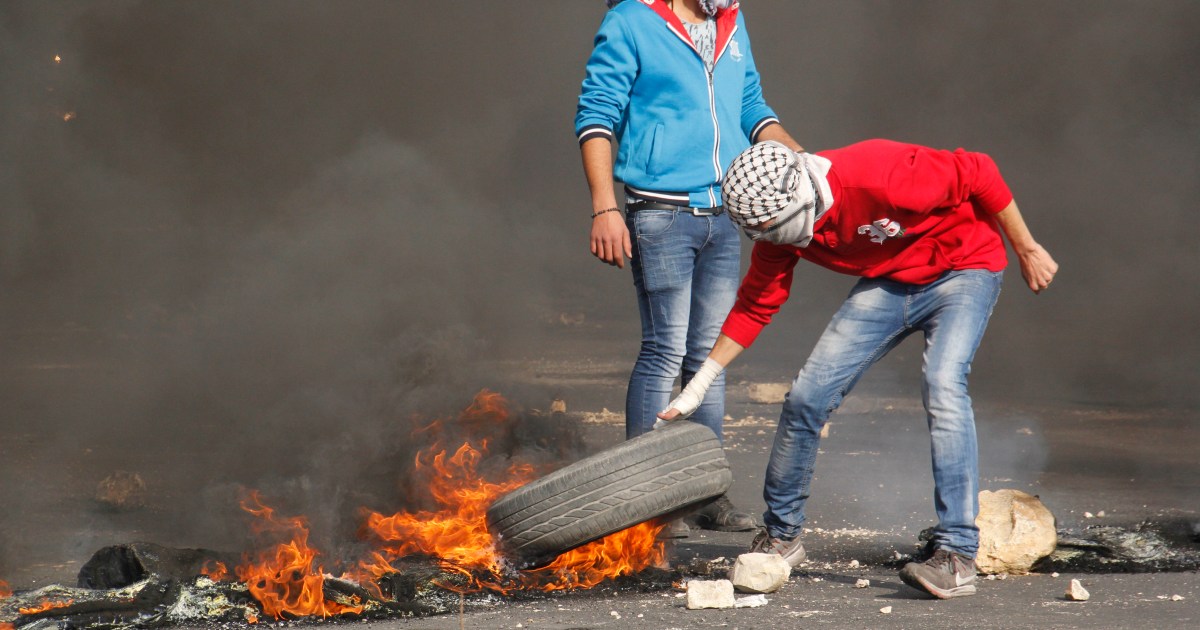Foreign Policy magazine said that a generation of young activists on both sides of the Green Line now carry the banner of defending the Palestinian cause after the Palestinian leadership abandoned it.
In a report prepared by journalist Dalia Hatouka, the magazine saw that the Palestinian Authority was frighteningly absent from the scene at a time when Israel was bombing the Gaza Strip for 11 days, and did nothing but issue formal statements of condemnation for the Israeli bombing campaign that caused a staggering number of deaths in the Strip. .
She said that civilian leaders on the ground, most of them Palestinian youth, have filled the void left by the Palestinian leadership, which has lost its compass.
These leaders were able, and speaking to the magazine, to organize a general strike throughout the occupied West Bank and Israel last week, in cooperation with Palestinian civil society organizations, which culminated in success as it was strictly adhered to on both sides of the Green Line, which abolished, even temporarily, the prevailing geographical and political divide. Among the Palestinians inside Israel and in the rest of the Palestinian territories.
Split and frustrated
The report indicated that Palestinian frustration with their leadership had reached unprecedented levels before the current crisis due to the absence of democracy in light of Israel's control over all aspects of daily life in the occupied Palestinian territories, including the electoral system.
Foreign Policy said that many Palestinians see that the Palestinian Authority is preventing them from choosing representatives who speak about their needs and aspirations, and that the Palestinian elections - which were scheduled during the spring and summer of this year - were postponed indefinitely by Palestinian President Mahmoud Abbas, which exacerbated the disappointment among the Palestinians. Large numbers of them registered to vote in the elections, despite doubts raised about their freedom and fairness.
It also indicated that the devastation and fear caused by the Israeli war on the Gaza Strip, and the current crises in Jerusalem, have produced new levels of unity among the Palestinians, who are ruled by a long-divided leadership.
The division between the Palestinian National Liberation Movement (Fatah), which runs the occupied West Bank, and the Islamic Resistance Movement (Hamas), which controls Gaza, split the Palestinian people geographically and politically, according to the magazine's report.
The magazine said that East Jerusalem, which Israel occupied in the 1967 war and has controlled since then, has been left without political representation, while Gaza lives isolated under the weight of the siege imposed on it since 2007, and Palestinian citizens of Israel are stuck between seeking to represent Arab parties. Traditionalism and participation in the Israeli political system that refuses to deal with them according to the principle of equality.
University issue
Foreign Policy says that despite all of the above, the Palestinians organized demonstrations last week as one people on both sides of the Green Line. They were united by the Sheikh Jarrah neighborhood issue, which has become a symbol of joint struggle and was able to overcome traditional differences between the factions, according to the magazine's report.
She indicated that Palestinian youth, who are not united by a specific political orientation, used social media to raise awareness about the Israeli war on Gaza and the imminent expulsion of their Palestinian brothers in East Jerusalem.
She said that despite being denied participation in the Palestinian elections, and persecuted by the Israeli and sometimes Palestinian security forces, these Palestinian youth are still organizing field campaigns, and they have established support groups in places including the Sheikh Jarrah neighborhood, and attended Israeli court sessions related to the neighborhood issue. Its Palestinian population is threatened with expulsion.
They were also able to make their voice heard through protests and to speak to the media, and they succeeded in returning the Palestinian cause to the forefront of political issues.
The magazine concluded its report with the opinion of Rashid al-Khalidi, historian and professor at Columbia University, who said that "those who claim to be leaders of the Palestinian people have failed to formulate a national strategy" and that "the leadership of Palestine now is Palestinian civil society."

